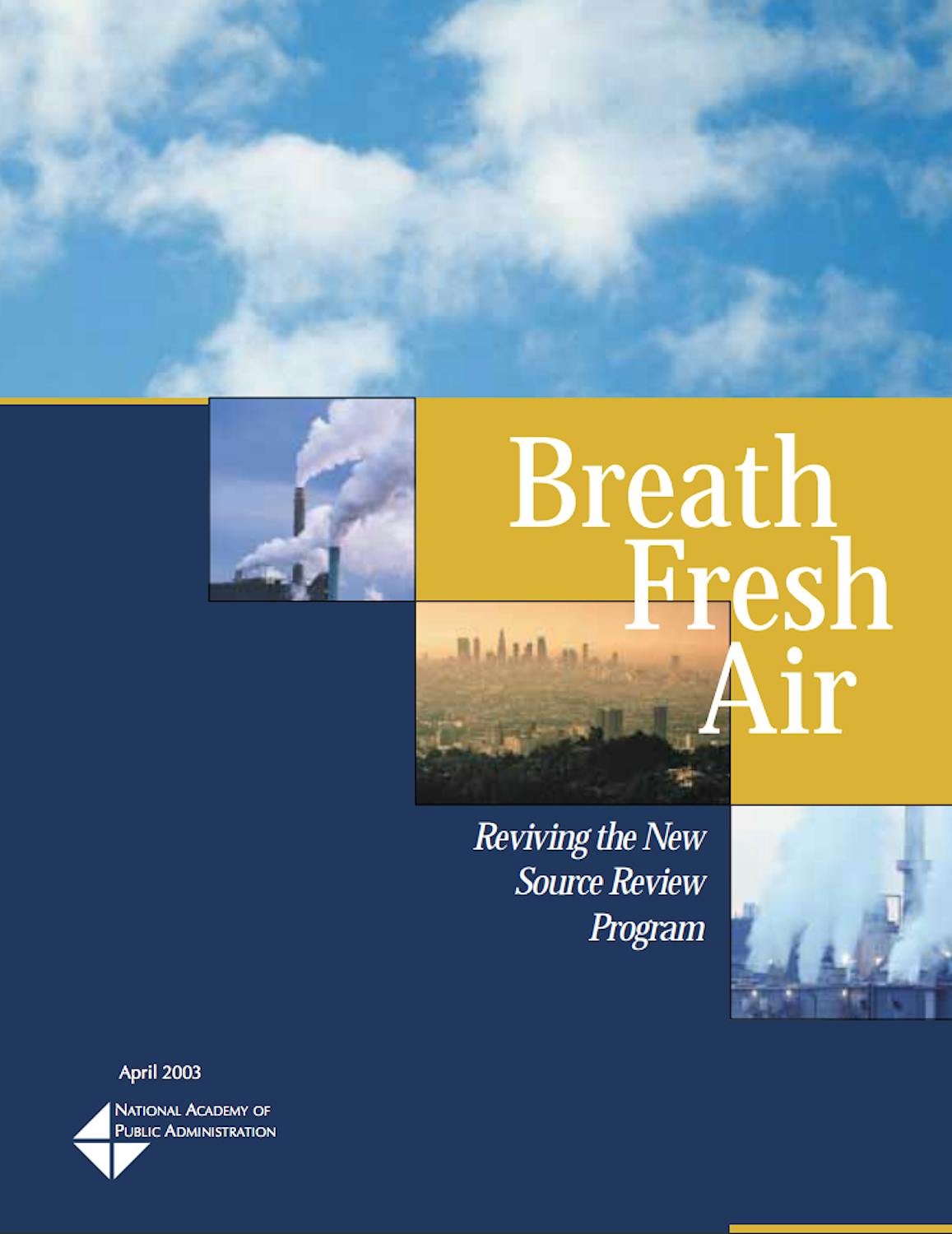
A Breath of Fresh Air: Reviving the New Source Review Program
With this report, the Academy fulfilled its charge from the U.S. Congress to conduct an independent management evaluation of the Clean Air Act’s New Source Review (NSR) program. The NSR was a critical tool enacted by Congress 25 years ago to protect public health and improve the nation’s air quality. But, as applied to existing facilities, NSR did not work as Congress had intended.
The Academy Panel reviewed how the NSR program is managed, why it has generated so much debate in recent years, and how the Environmental Protection Agency (EPA) and the states have shared their implementation roles. The Panel heard from regulated industries, state regulators, and environmental groups concerning parts of the program that work well and others that need improvement. These stakeholders were candid in their views of EPA regulations, policies, and guidance and how they are achieving Congress' intent.
Click the button below to view the View Study Report.
View ReportKey Findings
The conclusions of the Academy Panel challenged the regulated community, state and local regulators, EPA officials, and environmental groups to address significant environmental, economic, legal, technical, and management issues. The Panel found that the NSR program was critical for protecting public health, and that it has been effective in reducing pollution from newly built facilities. For existing facilities, however, NSR sometimes produced inequitable impacts and fell short of its environmental goals.
The Panel recommended fundamental reforms designed to ensure that NSR achieves its clean air goals, as Congress intended. The recommendations focused on performance-based solutions that provided flexibility for the regulated community and greater certainty for protecting the environment.
Recommendations
1: End Grandfathering.
2: Retain NSR for Newly Built Sources.
3: Continue to Enforce NSR Vigorously.
4: Reform NSR for Existing Sources Using a Performance-Based System.
5: Improve EPA and State Information Systems and Public Accountability.
6. Establish Clear Requirements for Compliance.
7. Prepare for the Future.
